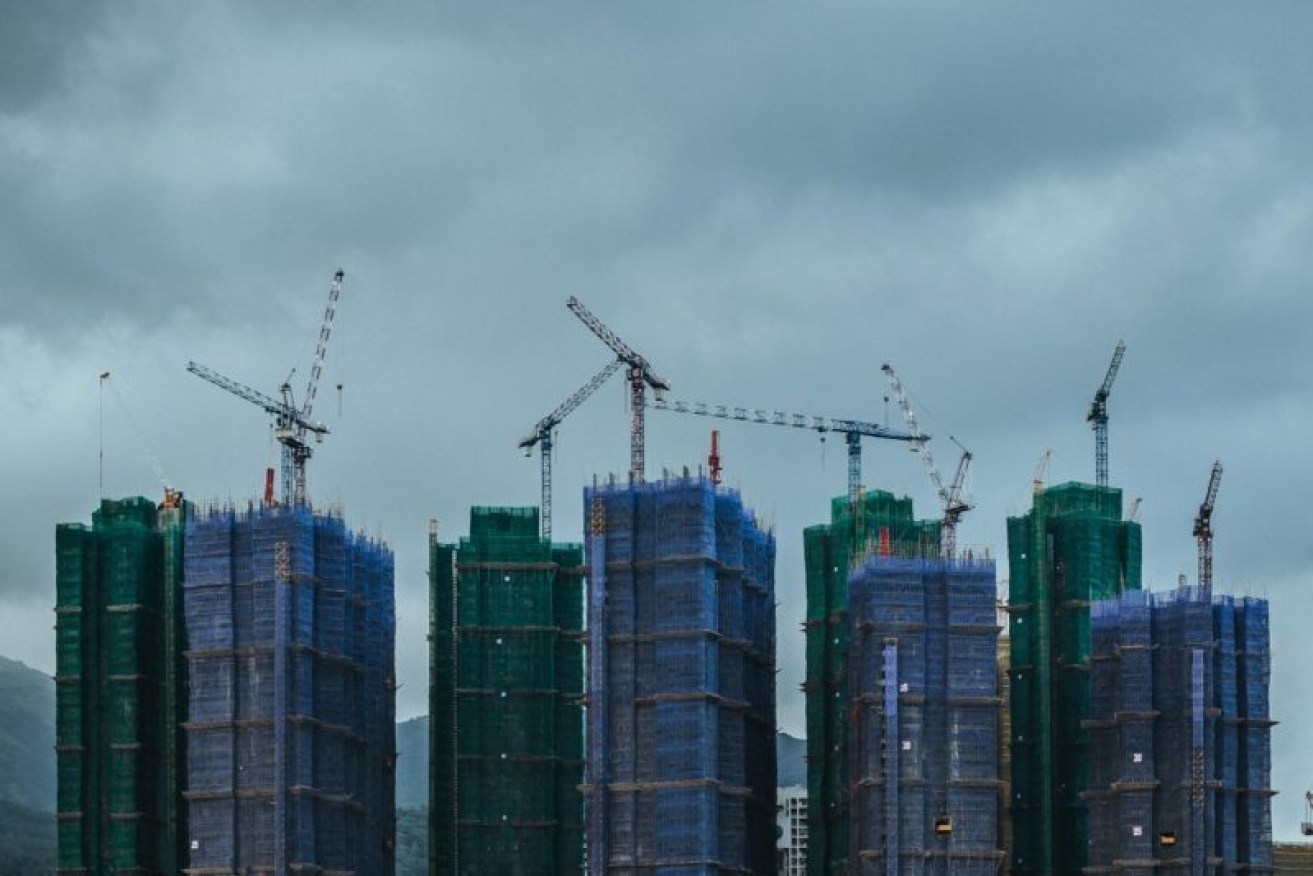Apartment glut taking a bite from the economy as building tanks


The apartment oversupply will see construction slump. Photo: Getty
The slumping apartment market will hit the Australian economy in coming years, shaving 1 per cent off GDP and hitting the construction industry hard, according to leading economists.
Robert Mellor, managing director with BIS Oxford Economics, said high-density housing construction would decline by 33 per cent this financial year and another 21 per cent in 2018/19 and would bottom out in 2019/20.
“The number of apartments constructed will fall 40 per cent or about 40,000 dwellings,” Mr Mellor said.
The predictions come as the king of Australia’s department construction industry, billionaire Harry Triguboff, called for government support for the industry.
Mr Triguboff told The Australian that apartment prices had fallen 10 per cent in the past six months.
“The falling prices will have a big impact on the economy. Australians could lose an enormous amount of wealth,” Mr Triguboff said. “The big question is whether the government will allow prices and volumes to go down before they start helping.”
Mr Mellor said the area worst hit by the apartment bust would be Brisbane “which is severely oversupplied and construction commencement fell 38 per cent in 2016/17”.
“In the next few years it will fall 75 per cent and prices are probably down 10 per cent,” he added.
Melbourne is also facing an oversupply but “our concerns have eased a bit as population growth has been strong”, he said.
“Construction starts were down 19 per cent last year and will probably fall by half in the next few years. It won’t be as oversupplied as Brisbane.”
Overall apartment construction will fall 40 per cent and a couple of factors were combining to create a double whammy, Mr Mellor said.
“Foreign investment restrictions introduced in recent times have significantly impacted since July and it’s affecting off-the-plan sales,” Mr Mellor said.
At the same time there is the increase in the cost of interest-only loans which is hitting demand from investors, he said. That comes on the back of regulatory moves which have restricted the banks’ ability to lend to residential property investors.
Falling apartment construction will be felt throughout the economy as it amounts to about 5 per cent of GDP.
“It could take about 1 per cent of GDP through to 2020; that’s about 0.3 per cent a year,” Mr Mellor said.

Household debt as % of income. Source: RBA
“The Reserve Bank has predicted GDP, now running at 1.8 per cent, will rise to between 2.5 and 3.5 per cent next financial year. We think it will stay closer to 2.5 per cent because housing will start to have a negative influence over the next 12 to 18 months,” Mr Mellor said.
Independent economist Stephen Koukoulas said “if you have weakness in the apartment market it will affect the economy”.
But Mr Triguboff’s calls for government action to unwind foreign ownership and investor lending restrictions were not justified.
“The government shouldn’t act. Apartment developers have had some great years.”
Research released by the Reserve Bank of Australia on Monday found that rising house prices meant “fewer people are making the transition from renters to owners than prior to the crisis (GFC)”.
“Those that do, however, are more financially stable than earlier cohorts” and “on average, better placed to pay off their loans”.
The RBA also said that while the property boom appeared to have pushed up personal debt, the situation in other similar countries was much the same.
Despite rising debt levels, the better financial health of first home buyers means that concerns over the effects of interest rate rises might be overplayed and “any given change in interest rates may have less of an effect on consumption and activity than it did prior to the crisis”, the report said.








